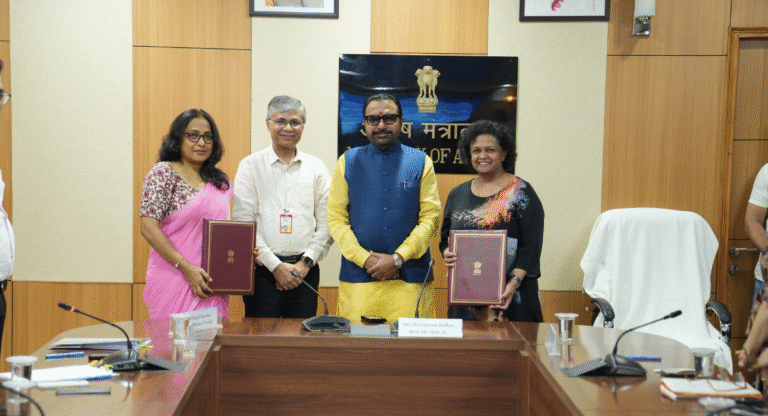
Mental health care moves closer to home with Punjab’s new initiative
On World Mental Health Day, Punjab launched its first State Mental Health Policy, marking an important step toward better care and awareness. The goal is simple — to make mental health services available to everyone, especially in small towns and villages.
The policy was developed by the Punjab Health Department with support from experts and organizations working in the field. It focuses on improving access, building awareness, and reducing the social stigma that still surrounds mental illness.
Mental Health in Punjab: Why It’s Needed
Mental health problems are increasing across India, and Punjab is no exception. Stress, depression, and anxiety have become common due to work pressure, unemployment, and substance abuse. Many people also hesitate to seek help because of social judgment.
With this policy, Punjab aims to make mental health care a part of primary healthcare — meaning that people can talk to doctors about mental health just like they do for fever or diabetes.
Key Features of Punjab’s Mental Health Policy

1. Mental Health at Local Clinics
The biggest change is that mental health services will now be available at Aam Aadmi Clinics and Primary Health Centres (PHCs). This will help people get early screening, counseling, and basic treatment without traveling to big hospitals.
2. Focus on Vulnerable Groups
The policy gives special attention to groups that often face mental health issues but have less access to help — like women, youth, farmers, and migrants. There will be programs designed especially for their needs.
3. Community-Based Support
Punjab plans to start community rehabilitation programs where people recovering from mental illness can get help within their local areas. These will include peer support groups, where people who have recovered will guide and support others.
4. Training Doctors and Workers
To make this plan successful, the government will train doctors, nurses, teachers, and community workers to identify early signs of stress, anxiety, and depression. Medical colleges will also get more seats in psychiatry and mental health courses.
5. Use of Technology
The policy also encourages the use of telemedicine and digital records to connect patients in remote areas with mental health experts. The state will collaborate with institutions like NIMHANS, ICMR, and TISS for training and research.
Aiming to End Stigma and Improve Awareness
The policy strongly focuses on breaking the stigma attached to mental illness. Public awareness campaigns will be launched to help people understand that seeking help is a sign of strength, not weakness. Schools and colleges will also get awareness programs for early emotional education.
Challenges Ahead
While the policy is a great step, it will need proper funding, trained professionals, and continuous public participation to be effective. Many villages still lack access to doctors, so spreading awareness and training will take time.
Still, experts say that this is one of the most progressive mental health moves by any Indian state, and it could become a model for others to follow.
Also Read- How to Prevent Brain Tumor: Simple Tips to Keep Your Brain Young and Healthy
How It Helps You
- Mental health care will now be part of your local clinic
- Easier access to counselors and early treatment
- Support for farmers, women, and youth dealing with stress
- Reduction in negative behaviour of people and more community awareness
- Digital and telehealth options for those in remote areas
Punjab’s new mental health policy aims to make help available, affordable, and acceptable for everyone. It’s a move that recognizes mental well-being as just as important as physical health.













